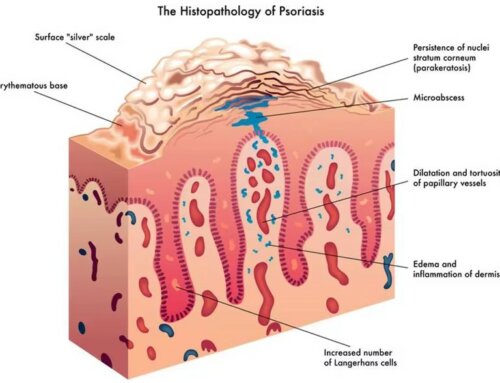Over the past week, during my weekly diabetes skills and management sessions, I taught 3 different patients who had contracted Hepatitis C within the last 5-12 years and had recently developed diabetes Type 2. They were all Baby Boomers (born between 1945 and 1965) between the ages of 49-68. Baby Boomers are the highest risk group for developing Hepatitis C because of past drug abuse as well as due to the lack of blood transfusion protocols prior to 1992.
Hepatitis C can be contracted by sharing needles, through sexual relations, through body fluids, by having non-sterile body piercings, as well as non-sterile tattoos. Health care workers are especially at risk for developing Hepatitis C from infected blood and body fluids from patients. There are approximately 4 million people in the U.S. living with Hepatitis C, a chronic and possibly fatal liver disease.
I wanted to share information regarding diabetes type 2 and Hepatitis C since there seems to be a connection.
- Hepatitis is a virus specific to the liver, which causes inflammation and swelling. Hepatitis A and B also exist, but there are vaccines to prevent these variations; you should talk to your physician about these vaccines – especially if you have diabetes type 2. Presently, there is no available vaccine for Hepatitis C, which makes it much more dangerous. It causes a decrease in liver function, which is also possible in diabetes type 2. Although it is not completely understood, according to an article in Diabetes Care, “Hepatitis C probably increases insulin resistance since it is chronic, which paves the way for diabetes type 2. It increases fat accumulation in the liver and fatty livers can’t accept glucose – which causes sugar to accumulate in the blood stream. Diabetes type 2 can also increase the risk of fatty liver disease. The evidence shows Hepatitis C is a risk factor for developing diabetes.” A simple blood test can identify Hepatitis C. A liver biopsy may also be required.
- Diabetes type 2 and Hepatitis C in combination make it even more difficult for the liver to function properly. The risk for cirrhosis (hardening and shrinking of the liver) and liver failure (the liver no longer functions) becomes more prevalent. Cirrhosis can increase insulin levels and make it more challenging to treat diabetes. Liver failure is fatal and a liver transplant will be required. Roughly 40% of liver transplants are due to Hepatitis C. Blood tests should be ordered for one disease if you already have the other. Hepatitis C and diabetes together raise the risk for liver cancer.
- Symptoms: Many times there are no symptoms associated with Hepatitis C, though others complain of symptoms including nausea and vomiting, fever, stomach pain and a decreased appetite. See your health care provider immediately if you suffer from these. People who are unaware they have diabetes type 2 may have symptoms up to 50% of the time – including thirst, increased urination, fatigue, hunger, blurry vision and slow healing wounds. Report these to your physician immediately as well.
- Talk to your MD about getting vaccinated for Hepatitis A and B as well as flu/pneumonia shots if you already have Hepatitis C. Always discuss OTC (over-the-counter) medications, which may adversely affect the liver including Tylenol, ibuprofen, and sleeping pills. Do not take supplements before speaking to your health care provider since they may be excreted through the liver and cause damage.
- There are currently multiple treatments for Hepatitis C. They are all extremely powerful medications with side effects, but have the ability to clear the Hepatitis C permanently. Included are Interferon (a shot), Ribavirin (pill), and anti-viral drugs called Victrelis and Incivck. The newest and most effective medicines are anti-virals called Olysio and Sovaldi. These medications are very expensive, but are often covered by health insurance. Newer treatments are constantly being developed for this illness. Your health care provider will make specific recommendations to you based on your case.
- Try to stay as healthy as possible with lifestyle changes. Think about eating a well balanced diet. As with diabetes type 2, include plenty of fruits and vegetables, as they can help with weight loss and reduce your chances of a fatty liver as well as diabetes type 2. Fruits and vegetables will increase your fiber intake and offer beneficial nutrients. Fruit is counted as a carbohydrate, so watch your portion size.
- Whole grains are important for fiber content as well. Remember to watch your portion size since they are carbohydrate foods. Include brown rice, quinoa, bulgur, oats and barley. Look for grains with the bran and germ.
- Eat lean proteins that are well cooked and include turkey, chicken and fatty fish. This can help with weight loss and reduce fatty liver disease.
- Avoid raw fish and sushi if you have liver issues or Hepatitis C. Stay away from raw oysters and clams since you can get food borne illness and bacterial infections which can worsen Hepatitis C and liver function.
- Avoid unpasteurized milk and cheese, which can also cause an increased risk of infection in your liver.
- Stay away from organ meats since they can increase iron levels and cause an enlarged liver, liver failure and cirrhosis.
- Avoid salt. Salt will increase fluid retention and increase blood pressure. Stay away from added salt, processed foods, baked goods and frozen meals.
- Selenium may be beneficial for the liver, which you can get from Brazil nuts. A serving size is 2 nuts since they are all fat and full of calories. Make sure you get enough chromium and magnesium as well.
- Avoid all alcohol with Hepatitis C or any liver disease. Alcohol and liver disease can increase the risk of liver failure. Stay hydrated with plain water.
- Avoiding cigarettes is smart for everyone, but especially when diagnosed with Hepatitis C or liver disease.
- Do your exercise. Exercise will help with depression and may increase your energy and endurance levels through these difficult medical treatments for Hepatitis C. Simple walking is all that is needed. It may help with weight loss and reduce fatty liver.
- If nausea is a problem with Hepatitis C, consider eating more frequently with several small meals daily and chew slowly.
- As with diabetes type 2 – consider a Hepatitis C support group or a therapist for more mental health comfort and support.
- Although it is not fully understood, a 2011 study in Gastroenterology states that “3 or more cups of coffee a day help those with Hepatitis C respond to their medical treatment better than those who do not drink coffee.”
Diabetes type 2 may become more prevalent in those diagnosed with Hepatitis C as Baby Boomers age. Be aware of what it is and the best way to treat to stay as healthy as possible during treatment. Good luck!
NOTE: Consult your Doctor first to make sure my recommendations fit your special health needs.







I am 81 years young, I recently had bronchitis, I saw a pulmonary doctor, who suggested that I see an allergist, I did, I then passed the “scratch test,” but I showed the doctor that I get itchy, and then I get a rash from scratching the rash. The doctor then drew some blood and sent it out to be tested, it came back that I had Hep C?
I saw a Hep Specialist, we went through all the questions of how I could have contacted Hep C, at the end of the questioning, he believed that I contacted it in the service, I was in the Army
between the years of 1955 to 1957 from one of those “Jet Injectors” that they used for injecting multiple vaccines one after each soldier for several
different causes. The Hep doctor served in the military and was familiar with those Injectors.
I am now awaiting approval for the new treatment to cure Hep C in 12 to 24 weeks, One pill a day, with a success of 85% of those being treated.
There are many veterans that believe they got the viruses in the service, many were Vietnam veterans
Maybe, you can add this to your advice, all vets are entitled to be tested by the VA. I never knew I had that problem, I have diabetes 2 and control it with mainly by diet.
Thank you! That is a great suggestion. I have written a newsletter in the past about Hep -C and who are most at risk ,but you are correct about adding information for vets. I read about multiple positive results with the new treatment and we at ADW diabetes wish you a full recovery! Thanks again for your comment. Nurse Robbie